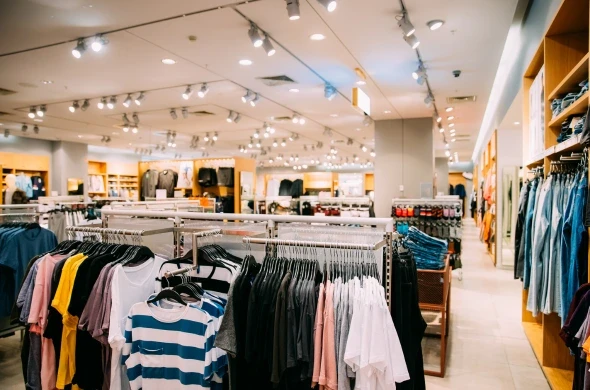The global economy is resilient as ever, as we’ve seen during the pandemic. Companies adjusted to the new way of working and doing business by staying connected with workers at home, and e-commerce took off due to brick-and-mortar stores slowing down and seeing less traffic because of restrictions as people rode out waves of the pandemic. Below is a snapshot of the global e-commerce in 2022 and what trends to watch.
What is global ecommerce?
Global e-commerce entails the exchange of goods or services across international borders when a purchaser is in a different country from the company’s country of origin. The purchase initially happens over the internet, and goods are shipped around the world via airplanes or ships.
E-commerce is a huge revenue generator for companies because businesses have the possibility of expanding their reach into new territories.
How big is the global e-commerce market?
Internationally, e-commerce is expected to generate $5.55 trillion in 2022, with around 21 percent of all global retail sales coming from e-commerce compared to just around 18 percent in 2020. Part of the growth of global e-commerce came from new technology. Another part came from the pandemic when more people had time to shop from home.
How much will global e-commerce sales grow?
Sales for global e-commerce are expected to grow to around $6.17 trillion in 2023 with the overall market share rising to around 22.3 percent of all retail sales. China is the single-largest global e-commerce market in the world, accounting for more than half (around 52 percent) of all retail e-commerce sales worldwide, with total retail sales just over $2 trillion in 2021.
7 Top global e-commerce trends to watch in 2022
Global e-commerce will continue to grow, and companies need to adjust and adapt to changing trends to capture more of their market share and expand into new markets.
Supply chains bounce back
Supply chains faced a major disruption with microchip shortages, ships backed up in ports, and transportation and international commerce stood at a standstill at some point.
To solve the problem, some retail outlets, like American Eagle, bought their own logistics companies to weather any future supply chain issues. Rather than rely on third parties, companies must diligently assess how best to address supply chain weaknesses. Diversifying suppliers is another avenue to take as companies look to prevent major disruptions in the future.
Mobile shopping & social commerce
People buying goods through mobile devices and apps continues to accelerate. As many as around 71 percent of mobile sales came from Shopify merchants over BFCM. Retailers must find available apps that allow people to buy things efficiently and securely with as few steps as possible.
More and more people will buy goods and services directly through social media channels. As many as one-third of Facebook users will buy items directly through its e-commerce app rather than needing to download another app or ordering system. Companies that partner with the social media giant stand to gain a bigger market share in the coming years.
It’s a combination of social media and e-commerce, and it’s a win-win for e-commerce platforms as their connected fans on Facebook.
Buy now, pay later options across borders
Have you looked on e-commerce sites lately? Many of them offer financing options, even for purchases of $100. These third parties facilitate the payment plans.
Swedish company Klarna noticed a 125 percent increase in downloads in April 2021, and its gross merchandise volume doubled in the first quarter of 2021 over the same period in the previous year.
Cross-border payment plans continue to rise, especially from Europe to America. This will help make e-commerce transactions even more attractive to buyers looking for the products they want.
Into the Metaverse with interactive shopping
Would customers pay for something completely virtual and online that has no value in the real world? Yes, to the tune of hundreds of millions of dollars and growing.
Companies like Shopify, Nike, Gucci, and Charlotte Tilbury have all set up virtual shops in metaverse realms, 3-D virtual reality simulations where people can purchase non-fungible tokens (NFTs) with cryptocurrency. NFTs are unique bits of code found nowhere else, and people can use cryptocurrencies to buy them and keep them, all in the digital realm.
Virtual reality will be the way forward for this medium.
Growth of APAC & China
By 2023, the Asia-Pacific region will carry more in retail e-commerce sales than the rest of the world combined. Rapid urbanization, technological advancements, middle-class growth, and plenty of private and government-led programs in China will all spur this rise.
China has the largest population of e-commerce users. And despite the Chinese government’s crackdown on data privacy (or lack thereof), any company doing business with China must do so carefully with regards to China’s policies regarding proprietary information and privacy.
Language localization for marketing
As brands expand into international markets, language localization is paramount. Language service providers can help global e-commerce retailers to translate their products and services into local languages taking into account context, cultural clues and biases, and taboos that may interfere with commerce.
A lack of adequate translations can hinder global e-commerce, especially when you consider that around 67 percent of global consumers have made a cross-border purchases.
Wholesalers are going online
Traditionally, wholesalers and retailers met at trade shows to develop relationships and see if they were good matches.
Now, wholesalers are launching marketplaces on their sites for people to buy wares in bulk. UNFI and Abound are two prominent examples, and both companies seek to connect retailers and independent sellers who would be interested in partnering with these large wholesalers.
As logistics and delivery systems become more widespread, it’s easier for retailers, even smaller ones running e-commerce shops, to invest in wholesalers for the right price.
Technology Consulting Services | Retail Consulting Services
Middle Eastern and African e-commerce partners have opportunities to expand their reach in the global e-commerce marketplace utilizing several channels. Asia is a prime market, and it will continue to grow in the coming years.
Ollen Group is one of the leading retail consulting firms in the Middle East & Africa region (MEA) offering consumer goods, retail consulting services and ecommerce services with turnkey solutions from strategy to execution. Our strategy consultancy services are up to date with consumer shifts, and the necessary steps needed to find success in the future. Our expert consultants will help your through your journey.
Read our latest insights, ideas, and perspectives that explore the trends shaping the future of business and society. Our consultancy services go hand-in-hand with these insights, confirming our position as industry leaders. Get in touch to find out more about our consulting services and industry expertise.



